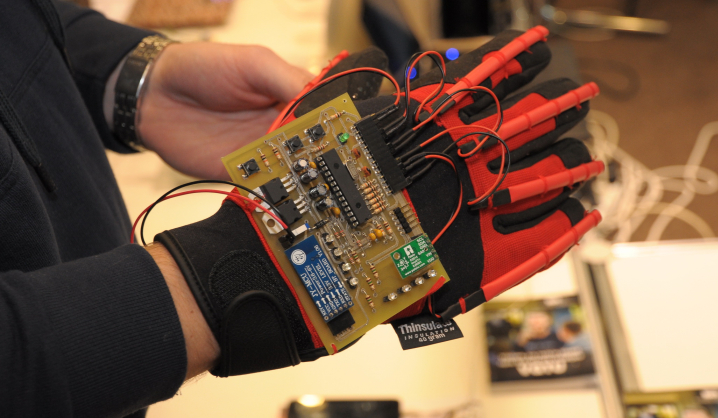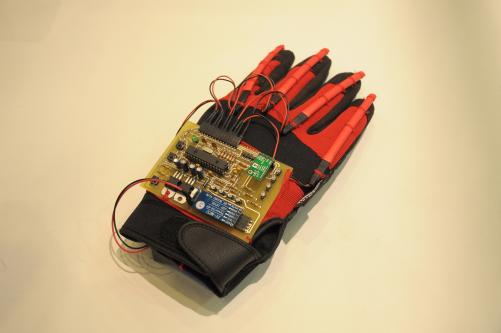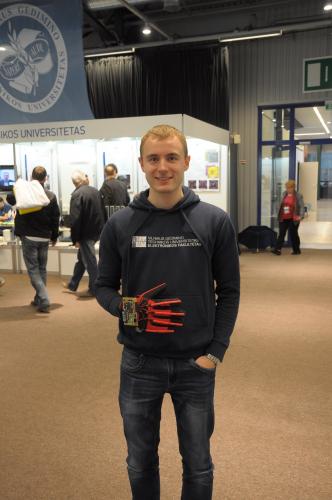Home
For international students
Student's invention can lead to a revolution in communication with deaf people
- Programmes in English 2025/2026
- Admission 2024/2025 Scholarships
- For exchange students
- Free Movers
- Transfer studies
- Erasmus+ studies and traineeships
- Mentor programme
- Student testimonials
- Accommodation
- Career Services
- Medical Care
- Immigration Regulations
- Leisure and Student Activities
- Useful information
- VILNIUS TECH for Creators of Tomorrow
- Mental and spiritual support
- Representatives Abroad
- Contacts
- Computer Engineering

2015-08-17
Student's invention can lead to a revolution in communication with deaf people
Recently, in order to communicate with deaf people, one should know the deaf sign language, which is considerably hindering the deaf people‘s integration into society. Vilnius Gediminas Technical University (VGTU) graduate Dariuš Laketčenko proposed a solution of this problem, inventing a smart glove, capable of identifying hand gestures. By wireless connection, the glove transfers hand gestures into the smart phone, which expresses them into words and sounds. Therefore, the deaf sign language, for which one should have specific knowledge, is presented in an easy way.
"This glove has been created as a prototype for possible innovation, helping deaf people to communicate with persons, unable to understand sign language. A smart glove, connected with smart phone via wireless connection, can translate hand gestures into words and sounds, helping turn specific language into a widely accepted form of expression, understandable for the surrounding people. After further improvement, this invention could become a tool for reducing social exclusion of the deaf, and extension of their communication abilities," - said D. Laketčenko, the student of the Department of Computer Engineering of the Faculty of Electronics of VGTU, about the importance of this innovation.
The glove can feel finger movements and identify hand position in space. When a person, wearing the glove makes a gesture, the data by wireless connection is being transmitted to the smartphone with the Android operating system, for processing it. "The program, installed on the phone, opens an appropriate sound and image file, and plays the sound by smart phone's loudspeaker and writes words on the screen. Therefore, a deaf man, with the help of a smart phone, can communicate with persons, who can hear and watch the words on the screen," - D. Laketčenko introduced the operation principles of his newly created innovation. This invention is the result of his Bachelor‘s thesis at VGTU.
Arvydas Stankevičius, the head of the Training Laboratory of the Department of Computer Engineering at VGTU, said the smart glove could spark revolution in communication with deaf people, if properly developed. "The smart glove can identify fifteen gestures so far, but after further development, this number can grow rapidly. Another area of development could be recognition of glove‘s gestures, because only bending movements are being recognised so far. One more way to employ this invention could be translation of gestures into other languages," – said A. Stankevičius about the future prospects of the invention.
According to D. Laketčenko, although he created the glove, thinking about the assistance for deaf people and their communication, this technology is versatile with much potential to find many other ways of employment. "After small changes in the program of the device, the smart glove could be used for keyboard-less and wireless controls of computers and other devices, for adjusting it for music, games, and other areas, " - the graduate from VGTU enumerated the opportunities of the innovation.













